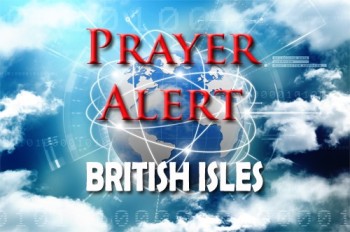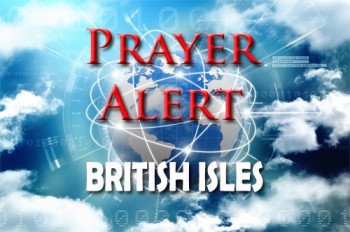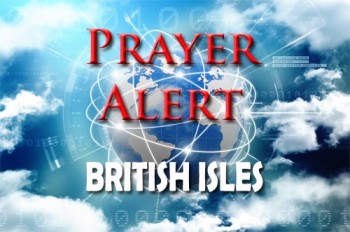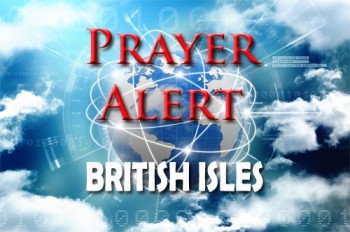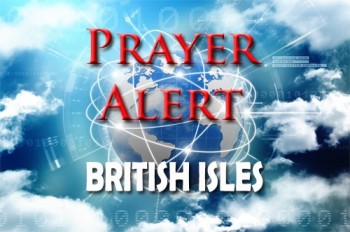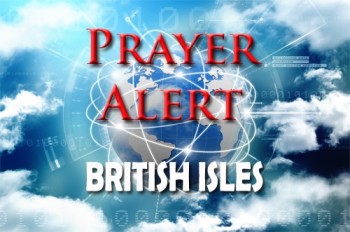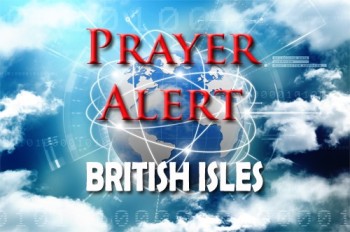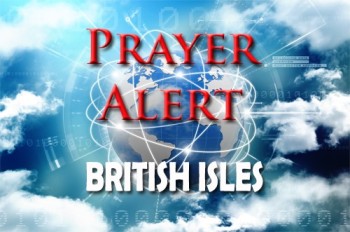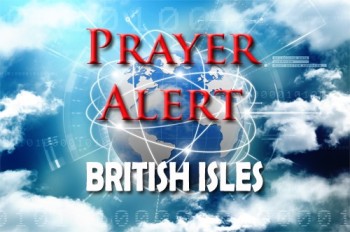Mandelson’s lawyers say his arrest was due to ‘baseless’ flight claims
On 23 February, Lord Mandelson was arrested at his London home on charges of misconduct in public office and later released on bail pending further investigation. His lawyers said the arrest was made due to claims that he might leave the country, but described them as ‘baseless’. The Metropolitan Police declined to comment. The investigation relates to allegations that, while serving as a minister, he shared market-sensitive government information with the late convicted offender Jeffrey Epstein. Officers executed search warrants at properties in Wiltshire and Camden before questioning him for nine hours. Lord Mandelson, who has always maintained that he has acted lawfully and done nothing wrong, says he is cooperating fully. Meanwhile, the police have finished searching the properties belonging to Andrew Mountbatten-Windsor, who was arrested on similar charges on 19 February. He has also been released on bail.
By-election: Reform member suspended for racist and misogynistic social media posts
Reform UK has suspended a campaign figure in the Gorton and Denton by-election, which they hope to win, after reported social media posts containing racist and misogynistic remarks. Adam Mitula, said to be involved in candidate Matt Goodwin’s campaign, allegedly questioned the scale of the Holocaust and made offensive comments about Jewish women and transgender people. He claimed that the posts were taken out of context, and angrily defended his reputation. Reform UK declined to comment on internal disciplinary matters. Labour’s deputy leader Lucy Powell urged Goodwin to distance himself from the remarks, warning that failure to do so would suggest tolerance of such views. The controversy comes during a closely watched contest in which Goodwin has positioned the vote as a challenge to Keir Starmer, focusing his campaign on borders, crime and cultural issues. Update: the Green Party won the by-election with a large majority. See
Local council elections reinstated after government U-turn
Thirty English councils are scrambling to reinstate local elections after the Government reversed plans to delay them until 2027. The ballots, affecting more than 4.5 million voters, will now go ahead on 7 May following legal advice sought after a challenge from Reform UK. The ministry of housing and local government confirmed the U-turn, alongside a £63 million fund to support council reorganisation. Nigel Farage described the decision as a 'victory for democracy', claiming the Government had backed down. However, election administrators warn that months of essential preparation have been lost. Officials had paused planning to avoid unnecessary expense and now face an intense period of catch-up to secure polling stations, staff, and smooth operations. Councillors across parties have expressed frustration, citing confusion and instability caused by repeated changes. Some fear wider plans for devolution and local government reform are now uncertain, leaving councils and residents seeking clarity.
Many Londoners to vote tactically to stop Nigel Farage becoming PM
New YouGov polling suggests large numbers of Londoners are prepared to vote tactically at the next general election to prevent Nigel Farage becoming Prime Minister. The survey indicates that in several potential Reform UK versus Conservative contests, voters may shift support strategically rather than back their first-choice party. In Outer London seats, Conservative support appears significantly stronger when tactical voting is factored in, while Labour and Liberal Democrat backing falls sharply in head-to-head Reform-Tory scenarios. In Labour versus Reform contests, Labour maintains a clear lead, with Conservative support collapsing. Where Labour faces the Conservatives, Reform voters appear willing to switch to the Tories, while Lib Dem and Green supporters may lend votes to Labour. However, Green voters show less inclination toward tactical shifts. The findings challenge earlier projections suggesting Reform could secure major gains or even a Commons majority.
Tommy Robinson announces rally to unite UK 'under God'
Far-right activist Tommy Robinson has announced plans for a new ‘Unite the Kingdom’ rally in central London, promoting the theme 'Four Nations. One Kingdom. Under God.' In a promotional video, Christian language and imagery feature prominently, echoing a previous rally in September which included public prayers, worship songs, wooden crosses, and banners declaring biblical slogans. Some Christian leaders have criticised the movement’s use of Christian symbols. One minister described it as an attempt to 'churchwash racism', arguing that the cross should represent Christ’s inclusive love rather than division. Former archbishop Rowan Williams was also among those condemning the earlier march. While it reportedly drew large crowds, a subsequent carol event saw lower attendance. The rally is scheduled for 16 May, coinciding with the FA Cup Final, raising logistical concerns for policing. The announcement follows Robinson’s claim that he left the UK after being named on an extremist target list.
Peru: congress ousts president after four months
There is continuing political instability in Peru after congress removed interim president José Jerí only four months after he was appointed. Secret meetings with businessmen and allegations of influence-peddling triggered public outrage and a parliamentary vote of censure. His departure makes him the latest in a series of leaders forced from office in recent years, leaving citizens weary and distrustful of institutions; they long for transparent leadership which addresses corruption, crime, and social unrest. The frequent changes of government have disrupted long-term planning and weakened confidence in justice and security. The situation highlights how fragile governance affects everyday life, especially for the poor who depend most on stability. Congress will soon name a new interim president, who will serve only until a new president is chosen by the people in a general election in April.
Latest vetting row raises fresh concerns over Starmer's judgement
A fresh political row has raised new questions about Keir Starmer’s judgment following controversy over the appointment of Lord Matthew Doyle to the House of Lords. Former Downing Street communications director Tim Allan has stated he informed the prime minister about Doyle’s past association with Sean Morton, a convicted sex offender, before Doyle was offered a peerage. Allan said Doyle admitted believing Morton’s claims of innocence prior to conviction but did not disclose campaigning on his behalf. Lord Doyle has apologised for an 'error of judgement' but has declined further comment. There has been considerable unrest within Labour, with MPs voicing concern that repeated vetting controversies are damaging public trust. Comparisons have been drawn with the criticism surrounding Lord Mandelson’s appointment, prompting calls within the party for stronger scrutiny of honours and peerages. With parliament entering recess, pressure remains on the prime minister to reassure colleagues and the public that due diligence and safeguarding standards are being handled responsibly at the highest levels of government. See
Are Starmer’s days as PM numbered amid fury over Mandelson?
Labour MPs have warned that Keir Starmer’s leadership is under serious threat following intense backlash over the appointment of Peter Mandelson as ambassador to the USA. Fury erupted after Starmer admitted he was aware of Mandelson’s past friendship with convicted sex offender Jeffrey Epstein before approving the appointment. A Commons debate nearly ended in government defeat, narrowly avoided through a last-minute amendment forcing the future release of documents relating to Mandelson’s vetting and appointment. Several Labour MPs described a collapse of trust, with some openly questioning whether they could support Starmer in a confidence vote. The mood, described as 'dark' and 'terminal’, has unsettled even long-standing loyalists. MPs warned that once withheld documents are released - currently delayed by a Metropolitan Police investigation - a leadership challenge could follow. Though Starmer has pledged transparency and announced plans to strip Mandelson of honours, and ministers insist he acted in good faith, many MPs fear lasting damage to the government’s credibility and moral authority.
Union threatens Labour after Andy Burnham blocked from by-election
Fresh divisions have emerged within the Labour party after the decision to block Andy Burnham from standing in a parliamentary by-election in Greater Manchester. The move, approved by Labour’s National Executive Committee, has triggered a strong backlash from MPs, party activists and trade unions. Unison general secretary Andrea Egan warned Keir Starmer that the party risked damaging itself through excessive central control and intolerance of internal dissent. Writing publicly, she accused the leadership of factionalism and called for a radical change in direction to prevent further electoral losses. More than fifty Labour MPs from across the party have expressed concern, with local activists also demanding the decision be reversed. Critics argue the move undermines democratic accountability and weakens Labour’s position in a once-safe seat now vulnerable to Reform UK and the Greens. Breaking news: Andy Burnham has said he will accept the Labour decision even though it was hard to take. See
Jenrick sacked by Tories, defects to Reform UK
Robert Jenrick’s political journey has taken another dramatic turn after his sacking from the Conservative shadow cabinet and his decision to align himself at once with Nigel Farage’s Reform UK party. Long known for courting controversy, Jenrick has steadily shifted from a centrist, pro-Cameron Remainer into a leading figure on the hard right of British politics. As a minister, he was embroiled in major rows over a planning decision involving a Tory donor and over actions taken during Covid lockdowns. More recently, he built his leadership campaign almost entirely around a tough stance on immigration, including leaving the European Convention on Human Rights. His rhetoric and admiration for Donald Trump have alarmed former allies and delighted critics on the right. Once seen as a rising moderate star, Jenrick now appears determined to reshape his future beyond the Conservative mainstream, signalling further turbulence in an already fractured political landscape.

